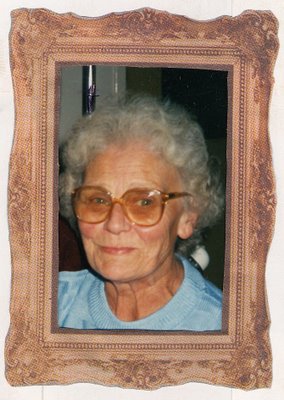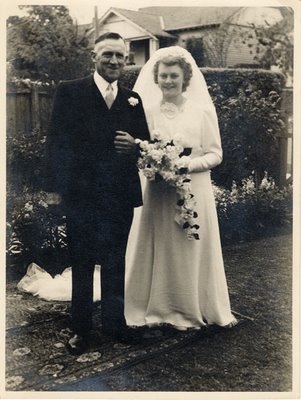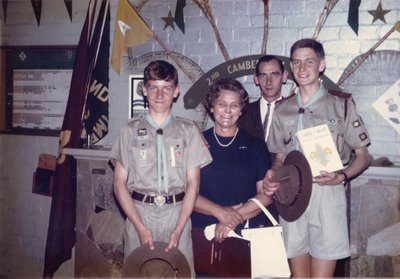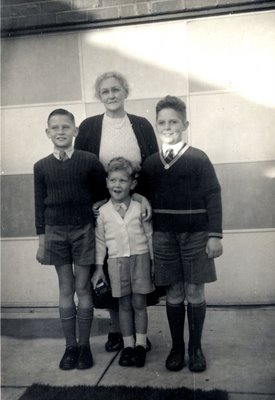Saturday, June 17, 2006
Rogue States and Failed Nations
This brilliant article by Shane Elson of Morwell, puts current events into a context to better understand what is really going on in the world.
I found this in the excellent Irregular Gippsland Peace Newsletter, edited by Peter Gardner - subscription details at the end.
Times are tough for "dictators", "rogue states" and "failing nations".
Indeed in the last few years we've seen one or two lose their jobs and be relegated to the status of "jail bird".
It seems like it is not a good thing to be the head of a country that happens to sit on top of huge oil or gas reserves. Saddam was the first to go.
We find Iran is threatening everyone with "nuclear" weapons and that Venezuela is being led by "communists" and that Bolivia is being ruled by "Soviet sympathisers", while little East Timor is about due for a "regime change".
So what is it that links all these comparatively small and in many ways insignificant countries together?
Other than their shared history of imperial colonialism and the pillaging of their wealth by foreigners ably abetted by foreign trained, domestic elites, it seems these countries share a certain attraction to the Euro and the socialist goals of equality and equity.
The roll back began in mid 2000 when Saddam announced he wanted payments for the "oil for food" program in Euros not US dollars.
William Clark from the Global Research Centre in California,in a 2003 essay, wrote that the reason the US was going to war with Iraq was the "administration's goal of preventing further [OPEC] momentum towards the Euro as an oil transaction currency standard."
Clare Foss, in her online Journal, noted that the Iraqi switch to the Euro had "potentially perilous consequences for the US. If OPEC were to decide to accept Euros only for its oil, then American economic dominance would be over."
Saddam was not hated by the US administration for what he was doing to his own people. God knows,they had ignored that for years. What really got up their noses was that he was threatening to change the way his nation traded and seemed intent on hitching his caboose to the European currency.
Indeed one of the first things the new US supported administration in Iraq did was enshrine the US dollar as the trading currency for all Iraqi foreign exchange transactions.
Following hot on the heels of the great American Imperial push to secure a revenue stream from the Iraqi's, Iran took the first steps, in 2004, to set up its own oil trading exchange (a bourse) based on the Euro.
Dr. EliasAkleh, writing for the Arabic Media Internet Network, observed that, "Iran does not pose a threat to the United State because of its nuclear projects, its WMD, or its support to "terrorists organizations" as the American administration is claiming, but in its attempt to re-shape the global economical (sic) system by converting it from a petrodollar to a petroeurosystem. Such conversion is looked upon as a flagrant declaration of economical (sic) war against the US that would flatten the revenues of the American corporations and eventually might cause an economic collapse."
The strident rhetoric we have been hearing from the top US brass over the last 12 to 18 months about Iran's threat has not, therefore, been about any alleged "threats" posed by non existent WMD's or that nation's plans to develop a domestic nuclear power industry.
Rather it has been Iran's audacity in proceeding with its plans to establish a new trading regime that would, effectively, lock the US out and thus prevent US multinationals from skimming the cream off Iran's international oil trade.
Writing in Petroleum World magazine, Gwynne Dyer notes ominously, "The US government knows, and is deeply alarmed by the danger that the dollar may be losing its status as the world's only reserve currency. Given the huge deficits that plague the US economy, the US dollar's value would collapse if other countries began to see it as just another currency, so the Euro must be prevented from emerging as an alternative reserve currency. In practice,that means the Iranian experiment with a Euro-denominated oil bourse must be stopped - and the only way to do that is to attack Iran."
While it is obvious that Iraq and Iran got into strife for not towing the US line, what about the rest of the region?
Well, in a little reported retaliation for the US Senate's blocking of a Dubai based company's bid to buy into US ports, the United Arab Emirates told the US to go jump and that they would switch 10% of their $US23 billion reserves to Euros, thus putting a huge dent in the US money markets.
While all this is unfolding, south of the border, down Mexico way, some South American governments are also thinking of jumping the good ship US dollar.
Hugo Chavez in Venezuela and Evo Morales in Bolivia have both made it clear that they want the OPEC nations to stop trading in dollars and convert to the Euro.
They are also intent on reshaping their nation's internal economies by renationalising foreign owned resource companies and not paying any compensation.
Speaking at the Euro Summit in May, Moralez told reporters that, "For more than 500 years our natural resources have been pillaged and our primary goods exported. This has to be ended now."
And we wonder why the US is calling him and Chavez "communists" and a "danger" to the world. "Whose world?" is a question well worth asking.
Finally, we come to East Timor.
As the poorest nation on earth with an average income of just over $1 a day, what threat could they pose and to whom?
Quite simply, they have looked beyond Australia and the US because neither our country nor the US will assist them or support their development agenda. Rather, our governments are intent on bleeding them dry.
The East Timorese government and its top leaders, all well known to us, made an interesting decision when they penned their independence charter back in 1998 and established the National Council of Timorese Resistance. This political arm of the resistance movement contained all the current players in the so called "crisis" they and their people are now experiencing.
What I have never heard reported was their stated aim to convert to the Euro as their trading currency in the sure knowledge that it would make investment in their nation more attractive to their Asian neighbours.
What is also little reported here in Australia is Mari Alkatiri's international tour in September last year to drum up Asian investment interest. Little was reported on the visits he made to 20 or more nations who have shown an interest in investing in East Timor's on and off shore oil and gas fields.
What is even worse in the eyes of the multinationals who are screwing Howard, Downer, Beasley and Rudd is the East Timorese intention to use the wealth of their resources to "alleviate poverty, create jobs and improve education" rather than reinvest it in their money making but wealth extracting schemes.
Regime change for our impoverished northern neighbour will probably come but at the cost of more innocent lives.
Like Iraq, Iran,Venezuela and Bolivia, East Timor will only become a failed state if we stand idly by and watch those who would rather it fail succeed in their quest.
Do we have the same courage the East Timorese have to dream of a better, more just and equitable society, or do we only care about those things that supposedly keep us safe from "dictators", "rogue states" and "failed nations"? The first is a possibility; the second only perpetuates the lies.
http://www.shane.araustralia.org/index.htm
From: Irregular Gippsland Peace Newsletter
No.24 July 2006
Price:$10 (12 issues) /Donation
Copyright:None. Feel free to send / copy / proliferate all or in part / pinup on a notice board etc.
Peter Gardner (ed) c/-PO Swifts Creek 3896
ngarak@bigpond.com to receive by email.
For email summary go to http://www.users.bigpond.com/ngarak/NgarakWeb29.html
Friday, June 09, 2006
 LOIS McPHIE
LOIS McPHIEOctober 16, 1924 - June 5, 2006
An ordinary, decent woman who showed
Loved by all, the memories of my Mum
Spared further suffering, she now rests in peace.
BIRTH
Lois McPhie was born Norma Lois Haeberle, on
Her father was Christian Charles Haeberle, then 36 years old, wood merchant, labourer and gardener, born at Bet Bet in country Victoria.

who would later prefer to be known as Lois,
attended Glen Iris Elementary School No.1148 all her school life.
Generally, her school reports show an average or above-average student, who was "...promoted each year...always very reliable,
anxious to take her part in all school activities
Lois Haeberle was awarded a 'Pupil's Cookery Certificate' from the Victorian Education Department on December 31, 1938, after making "satisfactory progress" at the Armadale Cookery Centre for 12 months. Anyone who would later enjoy her wonderful cooking would understand that!
In a reference, dated December 2, 1938, (her final school year),
Lois graduated with her Grade 8 Merit Certificate in 1938, at the age of 14.
She worked some years as a machinist at the Melbourne Pelaco company.
On September 21, 1946 at the age of 21, Lois married Colin McPhie,

(PHOTO: Mum with her father in the front garden of their family home at 16 Fuller Avenue.)
FAMILY LIFE
Together, Lois & Colin built their new family home
My brother Russell and I were blessed with parents who loved and supported us every step of the way through life. Through all the very good times and the bad, the ups and downs of life, Mum and Dad were always there with a helping hand or a comforting word.
 When we were young, our parents were not wealthy, but they saved wisely and made sacrifices to give us a good education, and we enjoyed many family holidays together.
When we were young, our parents were not wealthy, but they saved wisely and made sacrifices to give us a good education, and we enjoyed many family holidays together.
In the photo above, we are at Mordialloc Beach, near Melbourne, and below we are at Mildura. My favourite family holidays were on the farm at Yarram.


OTHER INTERESTS
Mum devoted so much of her life to her family,
Together with Colin, Mum enjoyed many coach tours around much of Australia, and they visited Singapore, Fiji and New Zealand.
For Mum, many of her proudest days were devoted to her grandchildren
 (PHOTO: Mum & Dad with the youngest of their 3 grandchildren, in 1989.)
(PHOTO: Mum & Dad with the youngest of their 3 grandchildren, in 1989.)


Sadly, but eloquently, in one of the last of her many letters and
For Mum, it always seemed that her greatest joy in life
The last 3 years of Mum's life were a 'living hell' for her and her family, as she
NEARING THE END
On the night of Sunday June 4, Dad, Russell and I visited Mum at her bedside in the Surrey Hills Private Nursing Home, at 16 Florence Street.
Perhaps now, reunited with her immediate family all together with her again for the first time in some months, for Mum this was the right time to let go. Had she been awaiting my return from Viet Nam?
At 2:30 on the morning of Monday June 5, 2006,
I was just so thankful that I was able to fly urgently from Viet Nam back to Melbourne just in time to see Mum that very last time.
FUNERAL
On Wednesday June 7, 2006 at 12:15pm,
The moving service was well conducted by Mr. Michael Kesik
Some of the colourful flowers arranged on Mum's coffin
Even brilliant sunshine came out that day to brighten up

(PHOTO: Mum & Dad at 3 Morell Street, celebrating their 50th wedding anniversary, September 21, 1996. This year, 2006, would have been their 60th wedding anniversary. Mum passed away just 3 months before reaching that milestone in married life.)
.
Although gone in body, the memory of Mum's spirit will live on forever in the hearts of all who were lucky to know her in her long 81-year life.
Mum, thankyou for your life, and your unqualified love.
Rest in Peace - Lois McPhie
With love from Bruce
Pentagon Papers
Thirty-five years ago, on June 13th, 1971, the New York Times began printing portions of a 7,000-page top-secret document [official US government studies of the war in Viet Nam] which came to be known as the Pentagon Papers.
In this article, Daniel Ellsberg, the source of the Papers to the Times, talks about the continuing relevance of the Papers today as our leaders wage war in Iraq and make plans for war in Iran.
IRAQ'S PENTAGON PAPERS
This unjustified war [in Iraq] is waiting for its whistle-blower, says the leaker of Vietnam's secret history.
By Daniel Ellsberg
Los Angeles Times
June 11, 2006
(Link to original article)
A JOINT resolution referred to the Senate Foreign Relations Committee last week by Sen. Barbara Boxer (D-Calif.) calls for the withdrawal of all American military forces from Iraq by Dec. 31.
Boxer's "redeployment" bill cites in its preamble a January poll finding that 64% of Iraqis believe that crime and violent attacks will decrease if the U.S. leaves Iraq within six months, 67% believe that their day-to-day security will increase if the U.S. withdraws and 73% believe that factions in parliament will cooperate more if the U.S. withdraws.
If that's true, then what are we doing there?
If Iraqis don't believe that we're making things better or safer, what does that say about the legitimacy of prolonged occupation, much less permanent American bases in Iraq (foreseen by 80% of Iraqis polled)?
What does it mean for continued American armored patrols such as the one last November in Haditha, which, we now learn, led to the deaths of a Marine and 24 unarmed civilians?
It was questions very much like these that were nagging at my conscience many years ago at the height of the Vietnam War, and that led, eventually, to the publication of the first of the Pentagon Papers on June 13, 1971, 35 years ago this week.
That process had begun nearly two years earlier, in the fall of 1969, when my friend and former colleague at the Rand Corp., Tony Russo, and I first started copying the 7,000 pages of top-secret documents from my office safe at Rand to give to the Senate Foreign Relations Committee.
That period had several similarities to this one.
For one thing, Republican Sen. Charles Goodell of New York had just introduced a resolution calling for the unilateral withdrawal of all U.S. armed forces from Indochina by the end of 1970.
Unlike the current Boxer resolution, his had budgetary "teeth," calling for all congressional funding of U.S. combat operations to cease by his deadline.
Two other similarities between then and now: First, though it was known to only a handful of Americans, President Nixon was making secret plans that September to expand, rather than exit from, the ongoing war in Southeast Asia — including a major air offensive against North Vietnam, possibly using nuclear weapons.
Today, the Bush administration's threats to wage war against Iran are explicit, with officials reiterating regularly that the nuclear "option" is "on the table."
Second, also in September, charges had been brought quietly against Lt. William Calley for the murder 18 months earlier of "109 Oriental human beings" in the South Vietnamese hamlet of My Lai 4.
This went almost unnoticed until mid-November of that year, when Seymour Hersh's investigative story burst on the public, followed shortly by the first sight for Americans of color photographs of the massacre.
The pictures were not that different from those in the cover stories of Time and Newsweek from Haditha: women, children, old men and babies, all shot at short range.
What was it that prompted me in the fall of 1969 to begin copying 7,000 pages of highly classified documents — an act that I fully expected would send me to prison for life? (My later charges, indeed, totaled a potential 115 years in prison.)
The precipitating event was not Calley's murder trial but a different one.
On Sept. 30, I read in the Los Angeles Times that charges brought by Creighton Abrams, the commanding general of U.S. forces in Vietnam, against several Special Forces officers accused of murdering a suspected double agent in their custody had been dismissed by the secretary of the Army.
The article, by Washington reporters Ted Sell and Robert Donovan, made clear that the reasons alleged by Secretary Stanley Resor for this dismissal were false (and that the order to dismiss the charges had most likely come directly from the White House).
As I read on, it became increasingly clear that the whole chain of command, civilian and military, was participating in a coverup.
As I finished the article, it hit me: This is the system I have been part of, giving my unquestioning loyalty to for 15 years, as a Marine, a Pentagon official and a State Department officer in Vietnam.
It's a system that lies reflexively, at every level from sergeant to commander in chief, about murder.
And I had, sitting in my safe at Rand, 7,000 pages of documentary evidence to prove it.
The papers in my safe, which came to be known as the Pentagon Papers, constituted a complete set of a 47-volume, top-secret Defense Department history of American involvement in Vietnam titled, "U.S. Decision-making in Vietnam, 1945-68."
I had exclusive access to the papers for research purposes and had been reading them all summer; they made it very clear that I, like the rest of the American public, had been misled about the origins and purposes of the war I had participated in — just as are the 85% of the troops in Iraq today who still believe that Saddam Hussein was responsible for 9/11 and that he was allied with Al Qaeda.
The papers documented in stunning detail a pattern of lies and deceptions by four presidents and their administrations over 23 years to conceal their war plans — along with internal estimates of the high costs and risks of these plans (and their low probabilities of success), never meant to reach the public and provoke debate.
They showed very clearly how we had become engaged in a reckless war of choice in someone else's country — a country that had not attacked us — for our own domestic and external purposes.
It seemed to me that to be doing that against the intense wishes of most of the inhabitants of that country was not just bad policy but morally wrong.
Moreover, it became clear to me that the justifications that had been given for our involvement were false. Vietnam was not a just war, and never had been. And if the war itself was unjust, then all the victims of our firepower were being killed without justification. That's murder.
As I read the story in The Times that morning about the coverup of the Special Forces murder and compared it with what I'd been reading in the secret history, I came to see it as a microcosm of what had been happening since the war began.
And I thought to myself: I don't want to be part of this lying machine anymore. I am not going to conceal the truth any longer.
I called Russo, who had been fired from Rand a year earlier, in part for inconvenient field reporting about torture of prisoners by our Vietnamese allies. I asked him if he had access to a copying machine. He did. We began on Oct. 1.
Night after night, I brought out batches of papers from my safe, and we copied them. I gave them first to members of the Senate Foreign Relations Committee, hoping that they would make the documents public. But they did not.
Eventually, I gave them to the New York Times, which began publishing them Sunday, June 13, 1971.
Two days later, the New York Times was ordered by a federal judge, at the request of the White House, to stop publishing — the first injunctive prior restraint of the press in U.S. history.
I then gave copies to the Washington Post and, when it also was enjoined, to 17 other newspapers, while I was being sought by the FBI.
On June 28, I turned myself in and was arrested and charged with violations of the Espionage Act and theft.
Today, there must be, at the very least, hundreds of civilian and military officials in the Pentagon, CIA, State Department, National Security Agency and White House who have in their safes and computers comparable documentation of intense internal debates — so far carefully concealed from Congress and the public — about prospective or actual war crimes, reckless policies and domestic crimes: the Pentagon Papers of Iraq, Iran or the ongoing war on U.S. liberties.
Some of those officials, I hope, will choose to accept the personal risks of revealing the truth — earlier than I did — before more lives are lost or a new war is launched.
Haditha holds a mirror up not just to American troops in the field, but to our whole society. Not just to the liars in government but to those who believe them too easily. And to all of us in the public, in the administration, in Congress and the media who dissent so far ineffectively or who stand by as murder is being done and do nothing to stop it or expose it.
It is past time for Americans to summon the civil courage to face what is being done in their name and to refuse to be accomplices.
We must force Congress and this president, or their successors if necessary, to act upon the moral proposition that the U.S. must stop killing men, women and children in Iraq, and must not begin to do so in Iran.
Neither the lives we have lost, nor the lives we have taken, give the U.S. any right to determine by fire and airpower who shall govern or who shall die in countries we have wrongly attacked.
~~~~~~~~~~~~~~~~~~~~~~~~~~~~~~~~~~~~~~~~~~
Email: list@ellsberg.net
Web: http://www.ellsberg.net
~~~~~~~~~~~~~~~~~~~~~~~~~~~~~~~~~~~~~~~~~~
By Robert Fisk
So, it's another "mission accomplished". The man immortalised by the Americans as the most dangerous terrorist since the last most dangerous terrorist, is killed - by the Americans. A Jordanian corner-boy who could not even lock and load a machine gun is blown up by the US Air Force - and Messrs Bush and Blair see fit to boast of his demise. To this have our leaders descended. And how short are our memories.
http://www.informationclearinghouse.info/article13556.htm
Dissecting the Zargawi Spectacle
By Danny Schechter
What a coup! What a show! And what an event for Iraqi “leaders” to show-off with terms like he has been “eliminated.” Within hours, the spinmeisters were claiming a “major victory” and pronouncing another “turning point.”
http://www.informationclearinghouse.info/article13557.htm
Impunity
By Mike Whitney
George Bush is right; Iraq is “the central battlefield in the global war on terror”. Regrettably, it is the United States that is the main sponsor and supporter of that terror in the form of American-trained death squads.
Death squad activity in Iraq now accounts for more than 1,000 casualties per month. The Baghdad morgue has become a conveyor-belt for American-generated carnage.
http://www.informationclearinghouse.info/article13558.htm
If you still accept the White House's official explanation, do yourself a favor and view this video!
http://video.google.com/videoplay?docid=-5137581991288263801&q=loose+change
International Day of Peace, September 21st.
The 191 Member States of the United Nations all approved UN General Assembly Resolution A/RES/55/282 fixing the date for the International Day of Peace as 21 September and declaring:
“that the International Day of Peace shall henceforth be observed as a day of global ceasefire and non-violence, an invitation to all nations and people to honour a cessation of hostilities for the duration of the Day...”
For the past 24 years, the International Day of Peace has been a catalyst for individuals, nations and civil society to unite in our shared yearning for a world at peace.
Thousands of activities have taken place, coordinated by governments, individuals and a network of more than 1,000 civil society organizations in at least 106 nations!
And yet the Day has not been well reported or recognized – until this year.
People around the world are slowly awakening to the International Day of Peace and the opportunity it offers for action in concert on all levels, manifesting the oneness of humanity.
This Day belongs to all citizens of the planet!
So let the musicians play, let the activists demonstrate, let the religious pray, let the students learn – and let all the people celebrate!
Your mission (should you choose to accept it!) is to provide the spiritual support for all of these activities to help create the shift in consciousness we know must come.
* Let your community know about this Day.
* Lead a Minute of Silence for World Peace at 12 noon in your home, your town, your school, your office or around a Peace Pole.
* Offer your prayers and meditation for world peace.
Together, let us raise the vibration of the entire planet on the International Day of Peace by joining in the powerful, universal prayer, "May Peace Prevail on Earth!"
We all know the power of our shared intention: let us focus our heart energy together on September 21st, across the planet, to create a new culture of peace for all our human family.
Resources for International Day of Peace activities
worldwide can be found at:
http://www.internationaldayofpeace.org
http://www.idpvigil.com
http://www.worldpeace.org/peaceday.html
Thank you for the love and light you shine!
May Peace Prevail on Earth!
From Deborah Moldow
The World Peace Prayer Society
The International Day of Peace NGO Committee at the United Nations
The United Religions Initiative Global Council
By Larry Hales
May 19 was the birthday of two beloved internationalists and revolutionaries....
Both Malcolm X and Ho Chi Minh saw the importance of the global class struggle, in whatever terms they placed it. As the fight against oppression becomes more radicalized, because of the increasing reactionary tendencies of the capitalist class and its governments, it is even more important that the movement remember the revolutionary leaders of the past and make the commemorations relevant to today.
Friday, June 02, 2006
a project of the Nation Institute
To send this to a friend, or to read more dispatches, go to tomdispatch.com
....the twentieth anniversary of the Reagan administration's Iran-Contra Affair lies just ahead this November. As Greg Grandin reminds us, Irangate (as it came to be known in the wake of Nixon's Watergate fiasco) was a kind of coming attractions, right down to its cast of characters, for our own era of right-wing domination, carnage, and now -- finally -- full-blown corruption scandals.
From Vice President Cheney to the new Director of National Intelligence John Negroponte, so many of the Iran-Contra era scoundrels returned to the political stage these last years for a grim second bow and, perhaps not so strangely, similar results -- though this time not on the relatively parochial stage of Central America, but in the oil heartlands of our planet.
The question Grandin's piece raises is this: Is a look into the past also a look into the future?
As the Iran-Contra moment seeded our own second age of Bush, what will this Bush moment bequeath us? What cast of characters, another decade or two down the line will emerge to take that grim second bow?
For those who care for some deeper background on that 1980s moment and our own, don't miss Grandin's superb new book, Empire's Workshop, a history of the American imperial presence in Latin America; but even more compellingly, a history of how, in relation to that region, the New Right first was stirred into a combustible political brew.
(Tom)
The Swift Boating of America
By Greg Grandin
An illegal war, torture rooms, warrantless wiretapping, manipulated intelligence, secret prisons, disinformation planted in the press, graft, and billions of reconstruction dollars gone missing: just when it seemed that the Bush administration had reached its corruption quota comes a new scandal.
This one is a bribery case involving defense contractors, Republican congressmen, prostitutes, secret Hawaiian getaways, Scottish castles, and -- wait for it -- the Watergate Hotel.
At its center is the just ex-Executive Director of the CIA, Kyle "Dusty" Foggo, whose sole qualification for being appointed to that post by just ex-Director Porter Goss seems to have been his ability, while head of the Agency's Frankfurt post, to hand out bottled-water contracts to friends and show junketing politicians a good time.
Don't fret though if you are having trouble separating this particular crime from other Republican offenses. There's a good reason -- they're all one scandal, part of the same wave of militarism, fraud, and ideology that has swamped American politics of late. While this wave of scandal seems now to be heading for tsunami proportions, its first swells date back decades. Just take a look at Dusty's résumé.
After his zealotry got him booted from Sears' security and the San Diego police department, Foggo drew on his collegiate Young Republican connections to land a job in the early 1980s with the CIA. His first mission was in Honduras, then the staging ground for Ronald Reagan's secret paramilitary war against Nicaragua's leftist Sandinista government.
In addition to his official duties, Foggo helped his old college buddy Brent Wilkes -- the defense contractor now implicated in the ongoing bribery case involving former Republican Congressman Randy "Duke" Cunningham -- bring conservative cadres down to Central America. There, he introduced them to anti-Sandinista rebels, better known as Contras. It seems that, even then, a lot more than anti-Communist solidarity was on the agenda. Three of Wilkes' former friends now claim that these trips included partying with prostitutes. .....
Click here to read more of this dispatch.


